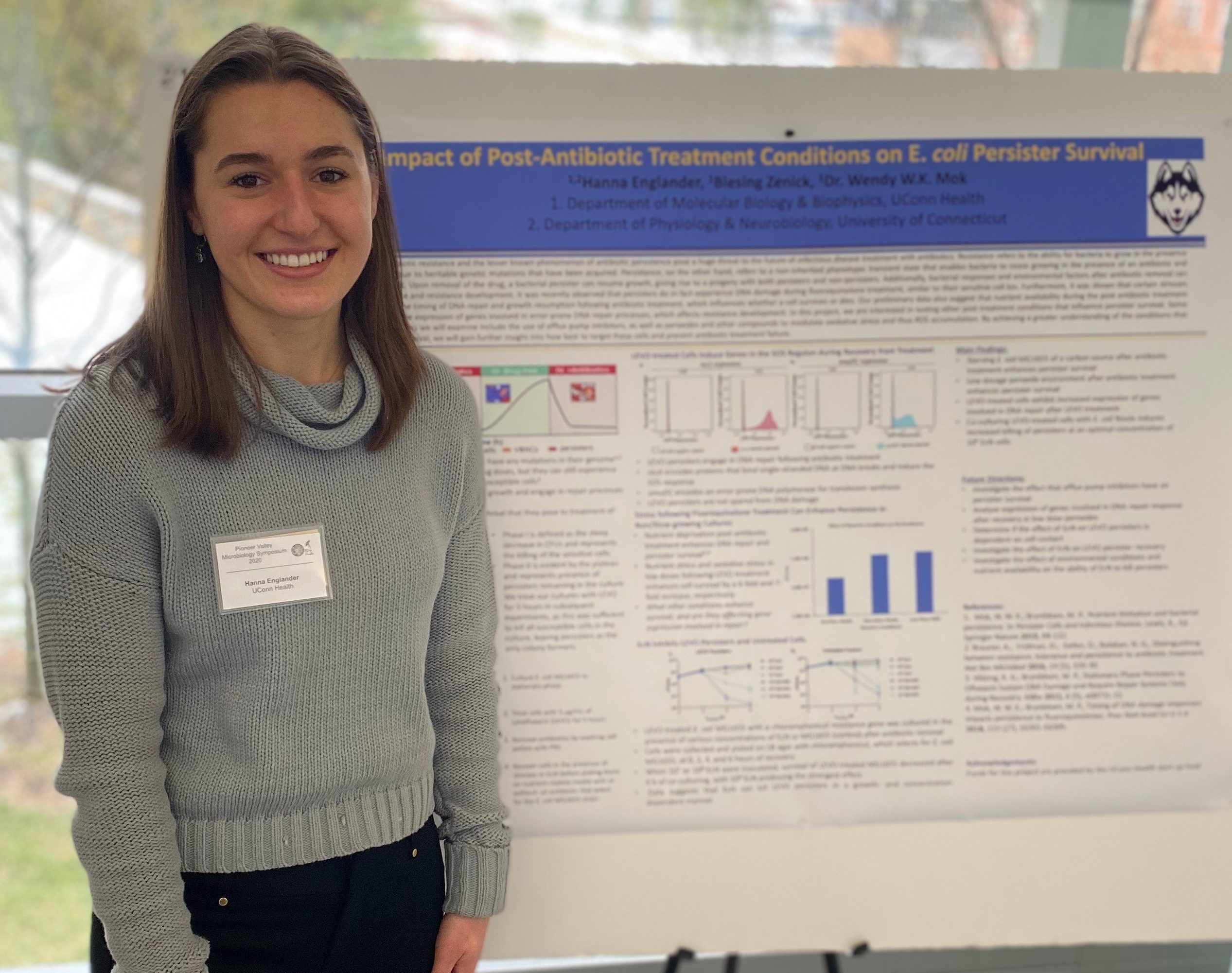UConn’s Office of Undergraduate Research each year provides Summer Undergraduate Research Fund (SURF) awards to support full-time undergraduate students in summer research or creative projects – an initiative that continues this year, despite the challenges presented by the COVID-19 pandemic.
SURF awards are available to students in all majors at all UConn campuses. The students’ project proposals are reviewed by a faculty committee representing various schools and colleges, and SURF award recipients are chosen through a competitive process. Each SURF award winner is supervised by a UConn faculty member.
This summer, UConn Today will take a look at various 2020 SURF scholars and their work.
Name: Hanna Englander
Hometown: Suffield
Year: Rising Senior
Major: Physiology and Neurobiology
Summer research project: Investigating how bacterial persisters survive lethal antibiotic treatments and contribute to infection relapse. Working in the laboratory of Dr. Wendy Mok, an assistant professor of in the Department of Molecular Biology and Biophysics at UConn Health.
What type of work are you doing with Dr. Mok this summer?
Her general research encompasses antibiotic resistance and persistence and how that contributes to relapsing infections. So, we focus specifically on persister cells, which are different from resister cells, because there’s not genetic changes associated with them. What my specific research is focusing on is microbiome interactions between cells and how that can affect antibiotic persistence – which is cells surviving and then contributing to reinfection.
So what does that research potentially mean for the average patient?
The research we are doing is trying to understand what makes cells resistant or persistent to antibiotic treatment, which is a huge global public health problem. The amount of health care problems associated with antibiotic research is rising, so our research focuses on understanding what causes it and how we can prevent it. My research takes a segue and looks at different microbiome interactions between cells, and seeing how these interactions can either exasperate or reduce antibiotic resistance.
How did you gain interested in this subject?
Starting in my freshman year, I knew I wanted to be associated in health care at some level. The further I got into it, I started to commit to the idea of pre-medicine. After my sophomore year, I was looking at different summer jobs I could apply for and, on a whim, I took one with Dr. Mok, doing projects with her. It was just going to be a one-summer thing originally. But, over the course of the summer, I gained a greater interest in the work. Antibiotic resistance was not on my radar, it was something I came to learn about and got very interested in. I stayed working there and what I am working on now will be my thesis for my honors program.
How is research different from classroom work?
When you actually do something out in the lab setting, it is completely different. That is something I definitely struggled with originally – to understand that difference between learning it in a text book from carrying it out. You get such invaluable experience from doing things hands-on. That’s why I would encourage anyone from any discipline to get into research. It solidifies your ability to actually do the work rather than read about it or see it in a PowerPoint.
How has the COVID-19 pandemic affected your work?
It has definitely affected our whole lab. Starting in March, we had to stop going to UConn Health. I was able to go back in early July. It has definitely been different doing remote work, but I think we have made the best of it. We’ve been doing things that I probably wouldn’t have learned because of remote work, such as bioengineering that you only do on a computer. So I have definitely gained tremendous skill through this time that I wouldn’t have if it was not for the pandemic. I have still learned a lot and made a lot of progress in our projects.
What are you future plans?
After graduation, I plan on taking a gap year to further my exposure and experience in the science field by continuing to do research. I am looking into getting my master’s in public health, because my research with Dr. Mok has really showed me I have a great interest in infectious disease and public health. I also work at Hartford Hospital, so I am still gaining clinical experience and I am hoping to apply to medical school.



